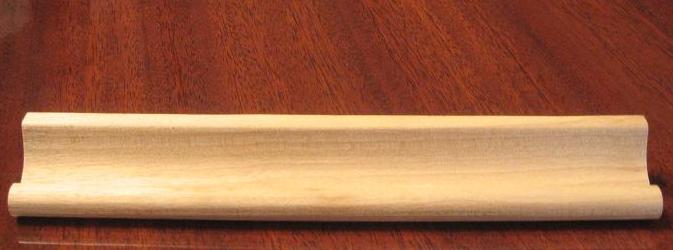RAD 0318 Part II Word Scramble

|
Embed Code - If you would like this activity on your web page, copy the script below and paste it into your web page.
Normal Size Small Size show me how
Normal Size Small Size show me how
| Question | Answer |
| A patient is being positioned for a routine scan of the brain. Why is he asked to tuck his chin down toward his chest? | To reduce the radiation exposure to the lens of the eyes |
| What is the expected HU value of a measurement taken in a lateral ventricle? | 4 to 8 |
| Which is a typical injection protocol for a routine examination of the brain? | 100 mL delivered at 1 mL/s, scan delay of 5 minutes |
| Compared with a cerebral CTA, what parameter must be changed for a cerebral CTV? | Delay from the start of injection to the start of scanning is increased |
| What is the goal in performing perfusion studies for patients with acute stroke? | To distinguish infarcted tissue from the penumbra |
| For what study might data be acquired while the patient is lying prone on the CT table? | High-resolution chest CT |
| A volumetric HRCT study refers to a protocol that includes: | A sampling technique that is intended to provide representative areas of the lung |
| Why do many protocols for the evaluation of PE scan in the caudal-to-cranial direction? | To reduce artifacts attributable to patient motion |
| What must happen to a thrombus for it to be referred to as an embolus? | It must detach from its original site |
| At a particular institution the PE protocol includes a second scan series, performed 180 seconds after the IV contrast. What is the purpose of this second series? | To check the pelvis and lower extremities for deep vein thrombosis |
| What heart valve is located between the right atrium and the right ventricle? | Tricuspid |
| B-blockers are likely to be used as part of a cardiac CT protocol when the: | patient's heart rate is higher than 65 bpm |
| An imaging technique that attempts to acquire data only during cardiac segments with the lowest cardiac motion is called: | prospective ECG triggering |
| A patient who is scheduled for a CT study has an irregular heartbeat with a rate of approximately 85 bpm. For which clinical indication is this the most problematic? | coronary artery disease |
| Why is it recommended that cardiac CT calcium scoring be restricted to patients with risk factors for coronary artery disease, rather than using it as a screening tool for all patients? | risks related to the radiation dose are a concern; for asymptomatic patients with no cardiac risk factors, it is not certain that the benefit of the exam outweighs the risks from the radiation exposure |
| Although patient compliance can sometime be a factor, what volume of oral contrast is typically considered the minimum amount needed for a routine CT study of the abdomen and pelvis? | 600 mL |
| Which is a window setting used to visualize subtle liver lesions? | 350 ww; 70 wl |
| A noncontrast CT of the abdomen is ordered on Mr. Smith. The primary indication is a 15-year history of alcoholism. What can the technologist do to help the radiologist determine whether the patient has a fatty liver? | Place a region of interest HU measurement within the liver and spleen before filming |
| The phase of liver enhancement that occurs 60 to 70 seconds after an IV bolus injection is called the: | portal venous phase |
| For what clinical indication might a dual-phase (late arterial and portal venous) CT of the abdomen be requested? | to assess possible liver metastasis from a primary thyroid tumor |
| The nephrogram phase is seen approximately ____ after IV contrast injection. | 110 seconds |
| An adrenal mass that measure less than or equal to 10 HU on unenhanced CT: | is an adenoma |
| What explains the diversity in clinical presentation of acute appendicitis? | the variable position of the appendix |
| A focused appendiceal CT refers to a scan protocol that: | limits the scan area to the lower abdomen and upper pelvis |
| What percentage of urinary tract calculi will be seen on non contrast helical computed tomography? | 99% |
| Why are isotropic voxels particularly important in images of the musculoskeletal system? | isotropic voxels enable MPR images to be created in any plane with the same spatial resolution as the original sections |
| Why is it recommended to position the patient for a shoulder CT so that the unaffected arm is extended over the patient's head? | to reduce streak artifacts |
Created by:
silsila622
Popular Agriculture sets
